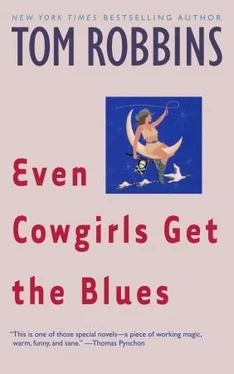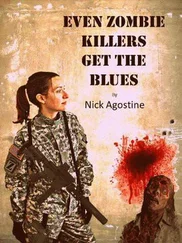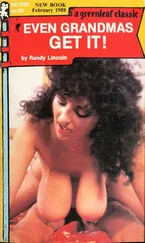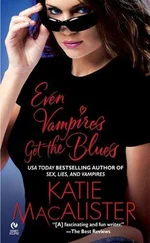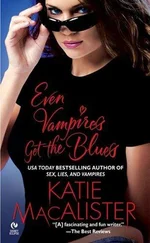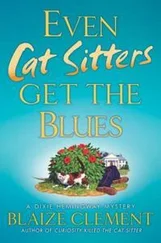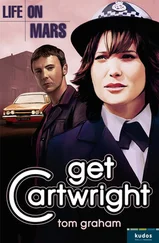64.
WHEN YOU'RE IN THE SADDLE ALL DAY, you need something to do with your mouth besides sing “Yippee eye oh ki yea.” Usually it's too hot and dry for singing, anyhow. You just end up with a throat full of dust.
However, when you're stuck in the saddle from dawn to dusk, you need something of an oral nature to keep you occupied and calm. That's why so many cowboys chew tobacco or puff roll-yer-owns. That's why it really is Marlboro Country.
But cowgirls of the New Age, they aren't much into the tobacco habit. Gloria was mighty attached to the Pall Malls that dit-ditted to her in an endless dotted line from South Richmond, Virginia, and Big Red was prone to accept a chaw. On the whole, though, the gals had a nonpreference for tobacco that was close to contempt, even if they did not agree with Debbie, who predicted, “When things really get too bad on the planet Earth and it starts to fall apart from wars and pollution and earthquakes and so forth, then Higher Beings are going to come in flying saucers and rescue the more evolved souls among us; but they can't take smokers aboard their spaceships because people with nicotine in their systems explode when they enter the seventh dimension.”
At any rate, cowgirls need something to do with their mouths while riding herd, and this is what they do: they stick a butterscotch Life Saver in one cheek and a clove in the other. They seldom suck and never chew, but just concentrate on the mixture of juices that drips onto their tonsils from the Life Saver and the clove, in a steady drip like rainwater running off the candied rooftops of Fairyland.
Now, aside from being calming and occupying, requiring no spitting and no assistance from the hands, a butterscotch Life Saver and a clove give a person the most interesting breath in the world.
It's no wonder the Rubber Rose ladies were always kissing on each other, although what a cowgirl does with her mouth once she's back at the bunkhouse shouldn't really concern us students of Western lore.
When there were thirty or more cowgirls riding for the Rubber Rose, sometimes the wheatgrass and the hills and the whole wide sky itself would start to smell like butterscotch and clove.
Sometimes the Chink would smell it way up on his ridge. Not when he first came to Dakota, of course. Then he could smell only pollen and sagebrush and woodsmoke and his own hairy self. Who was it once said, “A hermit is mysterious to everyone but the hermit.”
65.
WHEN HE FIRST LIT ON SIWASH RIDGE, the Chink couldn't catch a whiff of butterscotch/clove cowgirl breath or of Countess-gagging cowgirl snatch. Which is just as well, for had there been cowgirls then on the Rubber Rose range, they might have drawn his nose out of his own business. And he had business aplenty. The cave proved to be as wondrous as advertised, but enormous amounts of labor and ingenuity were required to adapt it to his lifestyle and make it comfortable for year-round residency. Moreover, he had a clockworks to assemble and that is not a simple task. In the process of readying the cave and planning his clockworks, he had also to extricate himself from Clock People consciousness, because twenty-six years among the Indians of the Great Burrow had molded him more than he had realized when he set out again on his own.
The mass of humanity has minds like soft wax. Once an impression is made upon them, it won't change until you change it for them. They are malleable but not self-malleable (a condition politicians and PR men use to sinister advantage). The Chink, however, was perfectly capable of reshaping his ball of tallow: it just took longer than he had anticipated.
When, four years later, he spoke of the Clock People to Sissy, it was with admiration, appreciation and amusement.
In times of widespread chaos and confusion, it has been the duty of more advanced human beings — artists, scientists, clowns and philosophers — to create order. In times such as ours, however, when there is too much order, too much management, too much programming and control, it becomes the duty of superior men and women to fling their favorite monkey wrenches into the machinery. To relieve the repression of the human spirit, they must sow doubt and disruption. The Chink snickered his hell-crazed snicker when he imagined the doubt and confusion that would follow society's eventual discovery of the Clock People. He snickered even though he suspected that the encounter would destroy the Clock People, and even though he scorned the sickening democratic more-is-better fallacy inherent in the notion that the part must be sacrificed for the whole.
“I loved those loony redskins,” the Chink said to Sissy. “But I couldn't be a party to their utopian dreaming. After a while it occurred to me that the Clock People waiting for the Eternity of Joy was virtually identical to the Christians waiting for the Second Coming. Or the Communists waiting for the worldwide revolution. Or the Debbies waiting for the flying saucers. All the same. Just more suckers betting their share of the present on the future, banking every misery on a happy ending to history. Well, history isn't ever going to end, happily or unhappily. And history is ending every second — happily for some of us, unhappily for others, happily one second, unhappily the next. History is always ending and always not ending, and both ways there is nothing to wait for. Ha ha ho ho and hee hee.”
The shaggy old fart slid his arms around Sissy and. . no, wait, she wasn't telling Dr. Robbins that part. Yet.
Sometime in the course of things, the Chink had made it clear to Sissy that, while he might not buy the Clock People's dreaming, he did respect the quality of their dream. The vision of an era, however lasting, during which all ritual would be personal and idiosyncratic, made the Chink's heart want to stand up and dance. Furthermore, while a return engagement by Jesus appears as impossible as worldwide Marxist revolution is improbable, a general disruption of the planet by natural forces is inevitable. The Clock People had narrowed the apocalyptic credibility gap.
“In the end, though,” observed the Chink, “for all their insight, the Clock People were a collection of human animals banded together to prepare for better days. In short, just more victims of the disease of time.”
Ah, time! Back to time. Dr. Robbins struggled to sit upright. The wine had said its good-bys. He was a trifle drunk. His mustache could not deny it. Every so often, Dr. Goldman would appear at the French doors. This didn't bother Dr. Robbins. Dr. Goldman would never have the courage to interrupt, not so long as Sissy continued her exercises. Great digits wallowed in the garden air.
(Dr. Goldman's face, as red and swollen as a smallpox vaccination, pressed to the pane. He saw the thumbs promenade stiffly in their suits of blushes. Then they began to quiver. They made wild and ultrarapid swoops, like water spiders on the surface of a pond. As he watched, a kind of radiant ectoplasm formed all around them. Sissy was smiling absently. Dr. Robbins lay, as if in adoration, at her feet. Dr. Goldman whirled abruptly and strode away.)
In truth, Dr. Robbins was a bit more anxious than he might have appeared. His patient's testimony had gradually become secondary to her hitch practice, her running of the scales. What had begun as casual muscle flex had escalated, as she lost self-consciousness, into a thorough inventory of the extravagant moves and motions stored in her gross appendages. Now she had fallen silent, absorbed in the piloting of her blimps. Dr. Robbins was agog at the display, but he wished, like old-fashioned novelists, to stay to the point, to keep the story flowing. You see, Dr. Robbins had a theory that was apropos the clockworks and the Chink. It had long been Dr. Robbin's belief that the central problem facing the human race was time.
Читать дальше
